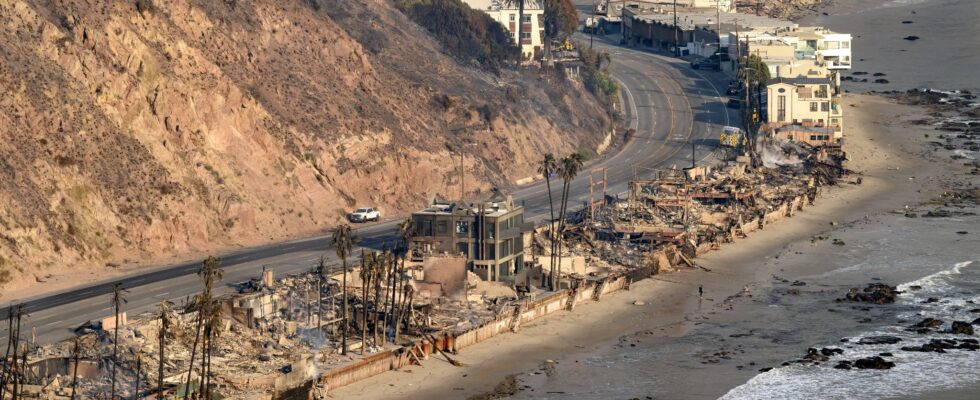Imagine coming home one evening after an exhausting day at work, opening the mailbox and discovering a letter from your insurance company. It’s March, you’ve just renewed your housing contract… It seems strange to receive such a letter. You open it and a bad surprise: you discover that the renewal of your contract has not been accepted.
This mishap happened last March to thousands of Californians when the company State Farm Generalleader in home insurance in the State (more than 9% market share) has canceled 72,000 contracts to preserve its profitability. “The decision was not taken lightly, she points out in a press release, and only after a careful analysis of the financial health of the company which continues to be impacted by inflation, costs reinsurance and exposure to catastrophes.” These contracts represented approximately 2% of all contracts signed with State Farm.
The information did not have the effect of a bomb. In California, it has even become an old refrain. “In 2023, seven of the twelve largest California insurers by market share have either paused or restricted the implementation of new coverage in the state,” Ricardo Lara worriedthe local insurance commissioner, an elected official whose mission is to supervise the sector. Thus, 2.8 million insurance contracts would not have been renewed in California between 2020 and 2022, including more than 530,000 in Los Angeles County, ravaged by the flames.
Insurance justice
To remedy these risks, the “Golden State” put in place, 50 years ago, an insurance system of last resort called the “FAIR Plan” (acronym for “Fair Access to Insurance Requirements”). insurance”). This system is financed by a compulsory contribution from private insurance companies on the one hand, and by contributions from subscribers on the other hand. Originally, FAIR Plan insurance could only be signed when a person was refused subscription to a contract by several insurance companies. But for many Californian households today, the FAIR Plan has become “their only recourse and no longer their last resort,” warns Ricardo Lara. In the Pacific Palisades neighborhood of Los Angeles, where the main fire is raging today, there were approximately 9,000 occupied homes and 1,430 subscriptions to the FAIR Plan in 2024. Four years earlier, the number of contracts in this district where the risk of forest fires was well known was only 360.
Furthermore, the FAIR Plan is not a miracle solution. The insured amounts cannot exceed three million dollars for a housing contract and 20 million for a commercial contract. However, in the neighborhoods currently ravaged by fires, filled with luxurious properties and numerous businesses, the damage exceeds these minimums. Already, the rumor is spreading on social networks of an insolvency of the minimum insurance. “The FAIR Plan has mechanisms, including reinsurance mechanisms, to ensure that all damages are covered,” one of its spokespersons tries to reassure our colleagues from Associated Press.
Exponential bill
Whatever happens, the amount of damage is expected to be in the billions of dollars. Three days after the fires started, around 10,000 structures have already been damaged or destroyed. Together, the Palisades Fire and the Eaton Fire are already the second most destructive fires in California history and they continue to spread. At this stage, the estimated amount of damage would be 50 billion dollars – for the most optimistic observers – at 150 billion.
Consequence: the contributions of policyholders in the region risk exploding. Especially since the “Golden State” has just reformed its system. If insurance companies want to continue working in California, they will now be forced to offer contracts in certain counties at high risk of natural disasters, according to a regulation of the local executive signed in December 2024. In return, they will be able to pass on the reinsurance costs – or the costs generated by the contracts that they take out themselves to compensate for the astronomical sums to be paid in the event of a catastrophe – on their customers. Consumer Watchdoga Santa Monica NGO responsible for defending consumer rights, estimates that Californian households could soon see their bills increase by 40%.
